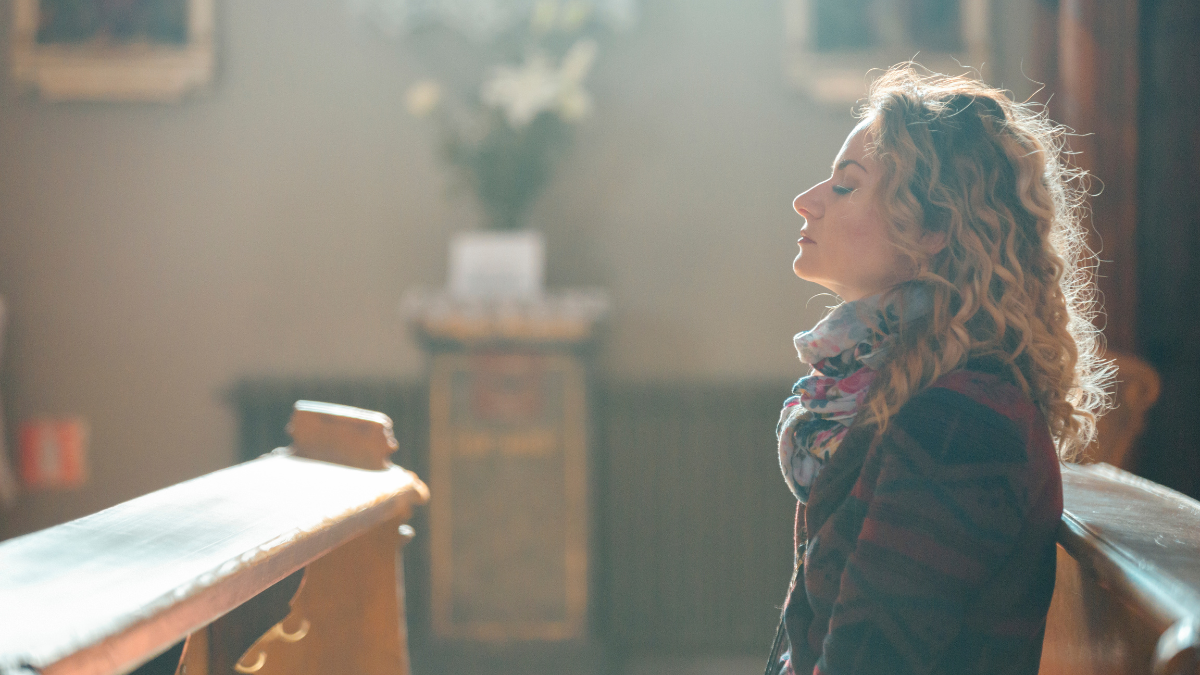
Photo: Stock Image
Warning: This article contains a victim-survivor’s account of disclosing church-related abuse.
Safeguarding Sunday is a safeguarding awareness campaign run by Thirtyone:eight, an independent, Christian safeguarding charity. The campaign encourages churches to dedicate all or part of a service each year to highlight the importance of safeguarding, share the steps they take to protect people, inform congregations where to seek help, and recognise those involved in safeguarding efforts. The day is a reminder of the sacred responsibility we share to protect the vulnerable, create safe spaces, and bring God’s healing love to those who have been harmed. It is a day that speaks not only of accountability but also of hope and restoration.
Safeguarding Sunday not only helps to create safer churches, but we are increasingly hearing stories from victim-survivors who have found Safeguarding Sunday to be a significant turning point in their journey.
We spoke to a victim-survivor, who shared that during a Safeguarding Sunday service, they heard the words, ‘you really matter and what happened to you really matters’ for the first time. This powerful message gave them the courage to reach out and get help. Here is their story, told in their own words.
"I felt seen, heard and understood"
“I only learned about Safeguarding Sunday when my church announced it. I wondered how an entire service on safeguarding would work, since I'd only ever seen it as a basic requirement for volunteers. But I was so wrong. The vicar and several others spoke with a strong conviction about keeping people safe in church; I had never heard church leaders speak with so much passionate commitment before.
No-one knew it, but I was a victim of church related abuse. The service reached deep into my heart and for the first time in 30 years, I saw a demonstration of safeguarding that communicated, ‘you really matter and what happened to you really matters’. I approached the vicar after the service and said I had experienced abuse in a previous church. She didn’t ask questions, she didn’t say we should talk, she gently signposted me to a professional organisation and encouraged me to speak to someone who would understand and provide support.
I was somewhat surprised by the simplicity of her response and the profound impact it had on me. In that moment, her actions communicated the seriousness of my situation; she said I believe you without words; I felt seen, heard and understood. This wasn’t the first time I had disclosed the abuse. On several previous occasions, I had spoken with church leaders, divulging in greater detail what had happened, but never felt seen or believed in the way this vicar had done. Her response to this brief disclosure shifted me from helpless victim to feeling confident and empowered.
I began to face into my painful past because I knew it was the only way I could find peace and reconcile with the 18-year-old me whose future was stolen by years of abuse. With guidance and support from various qualified and trauma-informed individuals, both Christian and non-Christian, I made the decision to report my abuse to the police. One year after first speaking with my vicar, I returned home to give my police witness statement, ironically on Safeguarding Sunday! Waiting at the airport, I felt the heavy weight of what was ahead of me but was moved to tears when I realised, I was stepping towards justice on this symbolic day.
The justice process was long and arduous, it nearly broke me multiple times and like many victims, I didn’t see the justice I had hoped for. Regardless of the result, the process itself contributed significantly to my healing, as did the involvement of individuals from both my present church and the justice system. Each person was clear about their role and duties, helping to create a safe and dignified environment that facilitated me recalling my story and finding the courage to speak out.
It’s now almost one year since the justice process concluded, I am reformatting my life and finally feel I have agency to make decisions about my future that aren’t hindered by the debilitating secret of abuse. I have my voice back and that brings its own kind of justice and empowerment.
I hope my story inspires church leaders to see Safeguarding Sunday with renewed meaning — not just as a day on the calendar, but as a moment to embrace safeguarding as central to the church’s life, and to show both those who are being harmed and those who have been hurt that the church is a place of listening, support, and safety.”
Safeguarding Sunday
Stories like this remind us why Safeguarding Sunday matters. It’s not about policies and practices. It is about people. It is about building communities where truth can be spoken, wounds can be acknowledged, and healing can begin.
Support
If you have been affected by the issues in this article, please call the Thirtyone:eight helpline on 0303 003 1111
You might also be interested in:
How to respond to disclosures of abuse
